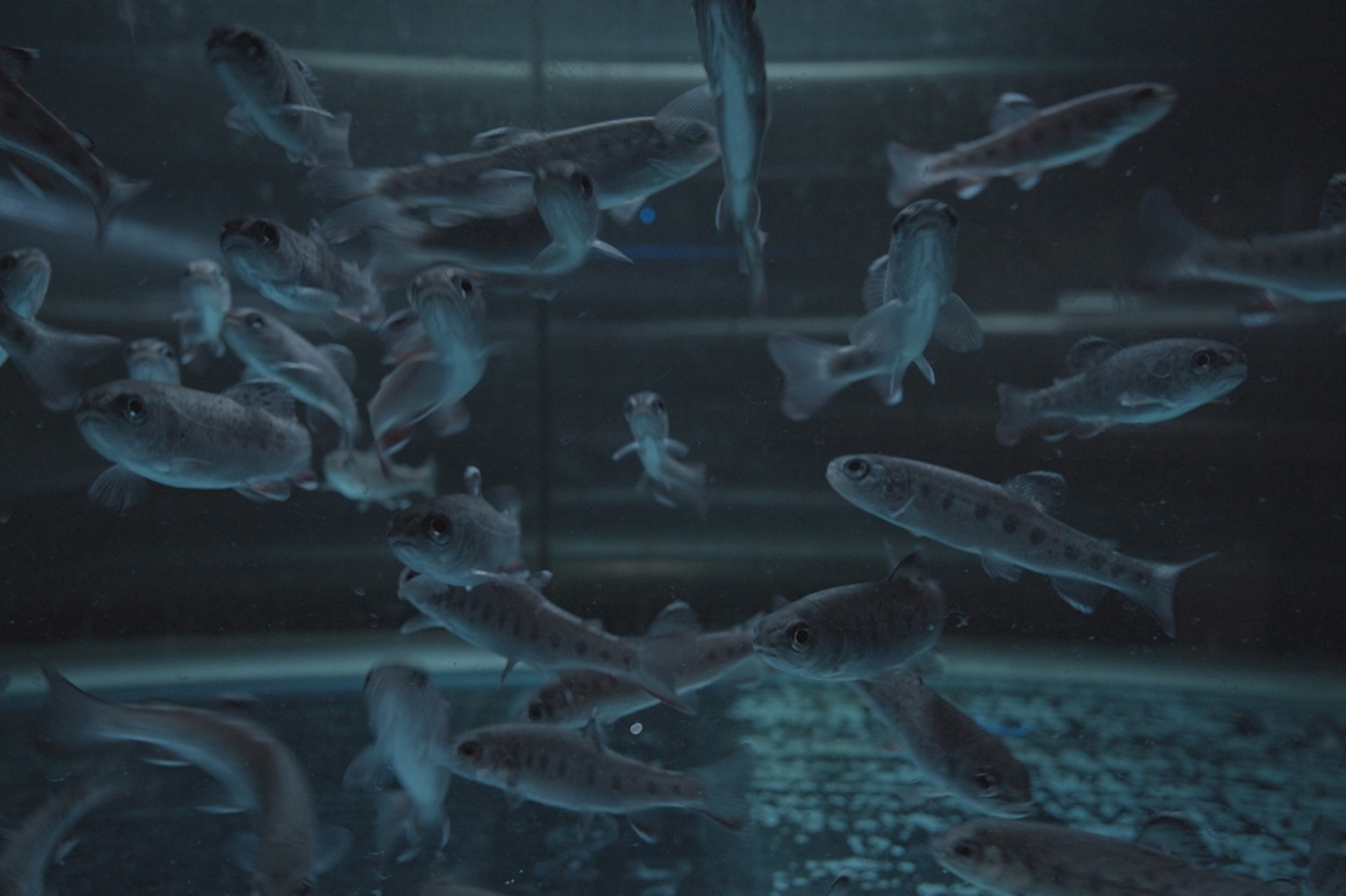Disrupting the body clocks of fish could be bad for their health

Trout
16 November 2021
The body clocks of rainbow trout shape daily rhythms of their immune system and the beneficial microorganisms that inhabit their skin, according to new research from a team including Aberystwyth academics.
Keeping fish under constant light – often used by fish farms to enhance growth or control reproduction – disrupts these daily rhythms and leads to increased susceptibility to parasites.
This work by researchers at Aberystwyth, Bangor, and Cardiff universities published in the journal Microbiome, demonstrates how important understanding the “chronobiology” of animals is for maintaining their health.
One of the co-authors of the report, Dr David Wilcockson from Aberystwyth University’s Institute of Biological, Environmental and Rural Sciences, commented:
“Both climate change and the pandemic has made us all more aware of the links between human and animal health and wellbeing. We need to be cognisant of what exposing fish to constant light means.
“This is the first study to look at the daily rhythms of fish microbiomes. The findings suggest that current farming techniques could be having an unintended impact on fish health.”
Dr Amy Ellison, a lecturer at Bangor University’s School of Natural Sciences and lead author of the research added:
“Rainbow trout have daily or ‘circadian’ rhythms in their immune activity and these rhythms appear to shift the composition of the microbial communities which live on their skin over day-night cycles. These fish skin ‘microbiomes’ are a first line of defence against invading parasites and pathogens, so this could be very important for their health.”
“We found that raising fish under continuous light severely impacted the timings of their immune system and microbiomes. Worryingly, when infected with parasitic skin lice, fish under constant light were less able to rid themselves of infection.”
Dr David Wilcockson from Aberystwyth University added:
“Chronotherapies – the appropriate daily timing of vaccines and other treatments - is beginning to revolutionise human medicine. But this is yet to be applied to farmed animals. Our study raises the possibility similar approaches could be used to help maintain fish health and welfare on farms.”
Skin lice are a widespread problem in aquaculture. This research also revealed lice infections significantly alter trout skin microbial communities, increasing the abundance of pathogenic bacteria.
This study is part of a BBSRC Discovery fellowship funded project to investigate the chronobiology of fish, their parasites and microbiomes.



